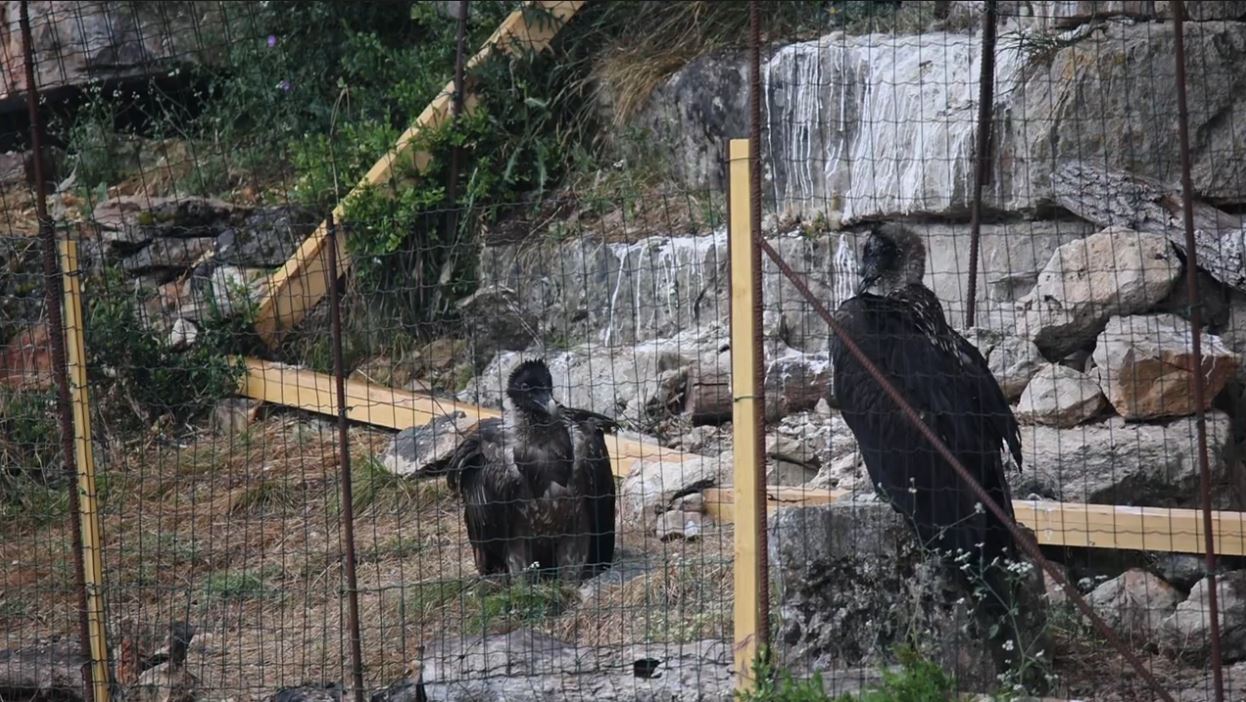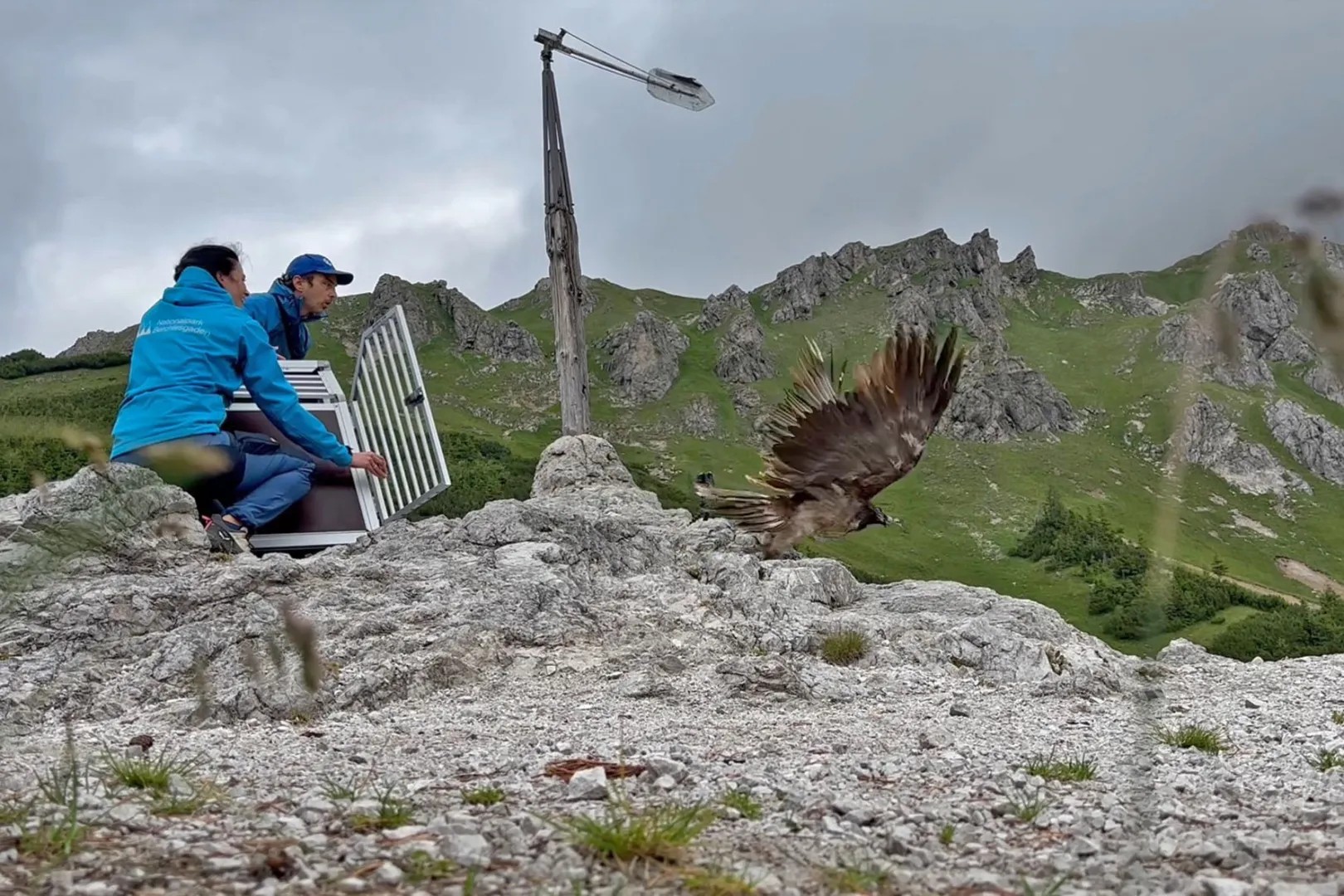
Some justice delivered at last! The farmer who laced a sheep carcass with poison four years ago, and as a result killed two reintroduced Bearded Vultures and other wildlife in Andalusia, finally got convicted. This outcome comes after much diligence, dedication and persistence by the authorities, properly investigating the incident and bringing the criminal responsible to justice — something that is rarely achieved in criminal cases of illegal wildlife poisoning.
Victims of the poisoning incident in 2016
After several years without any poisoning related mortality in Andalusia, 2016 proved to be a bleak year for vultures in the region, especially reintroduced Bearded Vultures. In 2016, Zafra, a Bearded Vulture released in 2012, was found dead in the Sierra de Magina. This death was remarkably damaging to the reintroduction project since Zafra was an excellent candidate to become a member of the breeding population soon. Later on, the remains of another Bearded Vulture, a female released in 2014 named Bujaraiza, were also found nearby. The two deaths caused a significant blow to the ongoing reintroduction efforts, led by the Junta de Andalucía and the Vulture Conservation Foundation (VCF), to bring back the species to the region following their extinction.
Unsurprisingly, the two Bearded Vultures were not the only victims of this poisoning incident in Sierra Magina Natural Park. One Cinereous Vulture, one Golden Eagle as well as several carnivore mammals such as martens, genets and foxes, also lost their lives after ingesting the poison baits. This incident proved once again how unselective and destructive this method of killing animals is, reinforcing the urgency for better enforcement to combat this illegal practice.
Investigation
The authorities took this case very seriously. Following the poisoning incident, the Junta de Andalucía, Agentes de Medio Ambiente, the Antipoison Program and SEPRONA de la Guardia Civil initiated a thorough forensic investigation to find the criminal(s) responsible and bring them to Court.
The wildlife agents performed 40 inspections in the area and collected extensive samples, with the toxicological analyses proving that they contained toxic and illegal poisonous substances, capable of causing severe damage and death to fauna. Furthermore, the investigation gathered the necessary evidence to demonstrate who was placing poison baits in the area.
Legal process and conviction
After many years of perseverance, the legal process finally started in November 2019, and this time the battle was fought in Court with the Junta de Andalucía acting as the Public Accuser against the suspect.
During the trial, the experts from the Junta de Andalucía explained that the sheep served as bait since the cuts on its neck were not from a bite of any animal, but were man-made. Furthermore, inside the carcass, toxicological analysis detected the poisonous substances Carbofuran and Metiocarb, both illegal and toxic. The former substance has been banned for years across Europe, and it is highly toxic, having the ability to kill a person weighing 70 kilos even with small doses. After presenting the evidence, the Junta de Andalucía and the Prosecutor’s Office requested that the accused gets a sentence of two and a half years in prison.
Thanks to the evidence, the Court determined that the accused was responsible for placing the sheep as poison bait to kill wild animals, predators or scavengers,
Finally, the farmer got convicted, receiving a €4,500 fine and being banned from working as a cattle rancher for three years and from hunting and fishing. The sentence is not final, and there is an appeal before the Provincial Court of Jaén.
Wildlife poisoning is an environmental crime and it should be treated as such. It rarely gets properly investigated and even more rarely reaches Court and a conviction. With this case, our Andalusian colleagues show that through proper investigation, legal involvement, diligence and persistence, animals that die from illegal wildlife poisoning can receive some justice!
The VCF applauds the efforts of the Junta de Andalucía, the judiciary, and everyone else involved, and urges authorities elsewhere to follow suit in taking this crime seriously and carrying out the necessary investigations to persecute criminals and combat this illegal practice!





